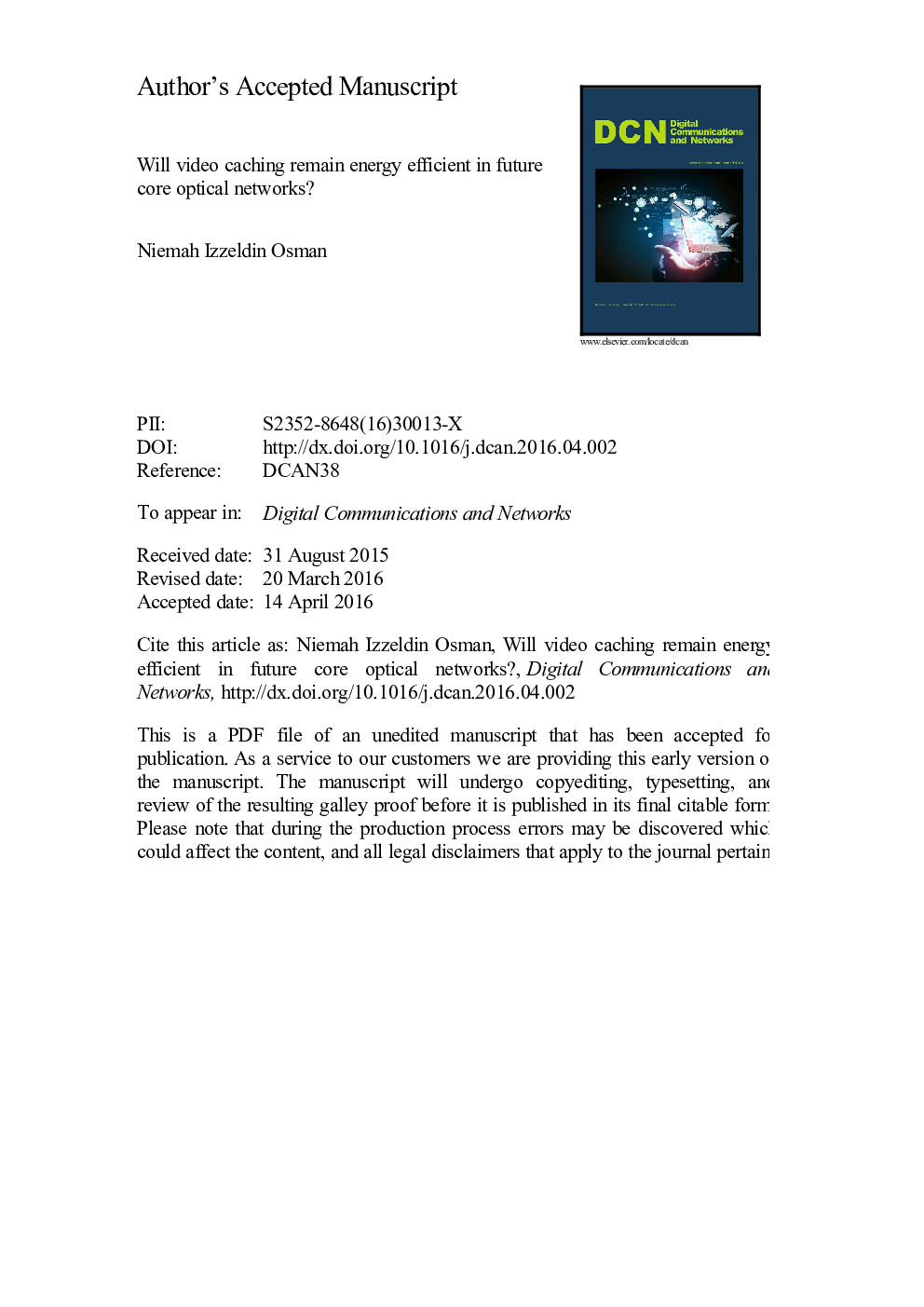| Article ID | Journal | Published Year | Pages | File Type |
|---|---|---|---|---|
| 5000846 | Digital Communications and Networks | 2017 | 14 Pages |
Abstract
Optical networks are expected to cater for the future Internet due to the high speed and capacity that they offer. Caching in the core network has proven to reduce power usage for various video services in current optical networks. This paper investigates whether video caching will still remain power efficient in future optical networks. The study compares the power consumption of caching in a current IP over WDM core network to a future network. The study considers a number of features to exemplify future networks. Future optical networks are considered where: (1) network devices consume less power, (2) network devices have sleep-mode capabilities, (3) IP over WDM implements lightpath bypass, and (4) the demand for video content significantly increases and high definition video dominates. Results show that video caching in future optical networks saves up to 42% of power consumption even when the power consumption of transport reduces. These results suggest that video caching is expected to remain a green option in video services in the future Internet.
Keywords
Related Topics
Physical Sciences and Engineering
Engineering
Control and Systems Engineering
Authors
Niemah Izzeldin Osman,
